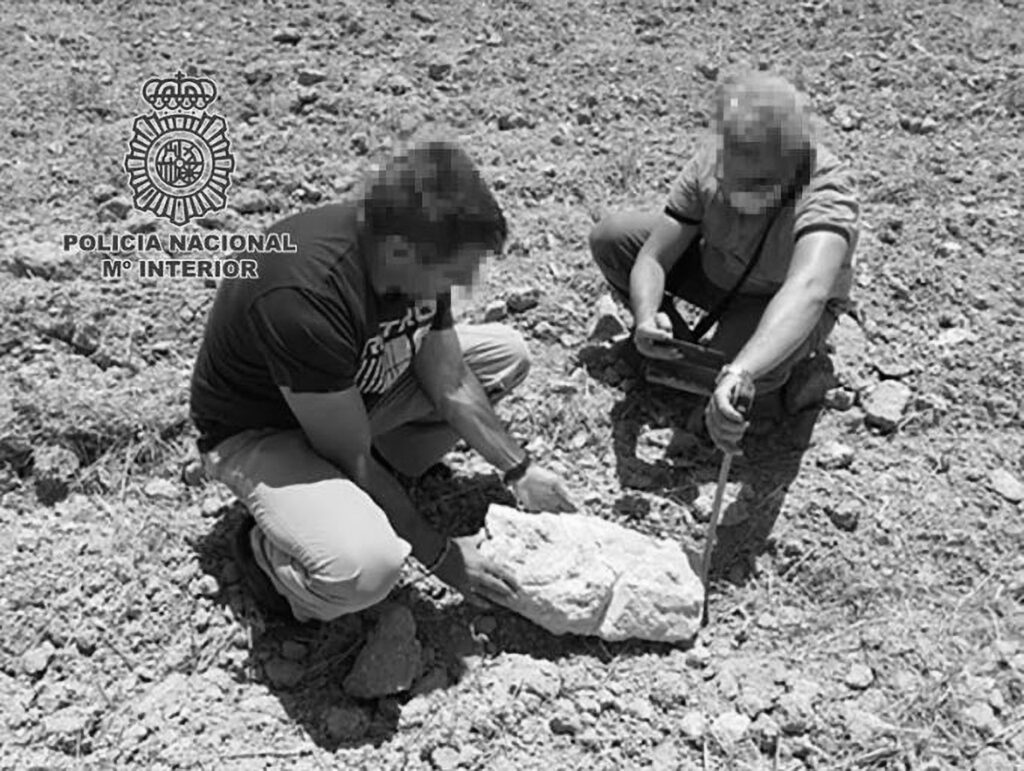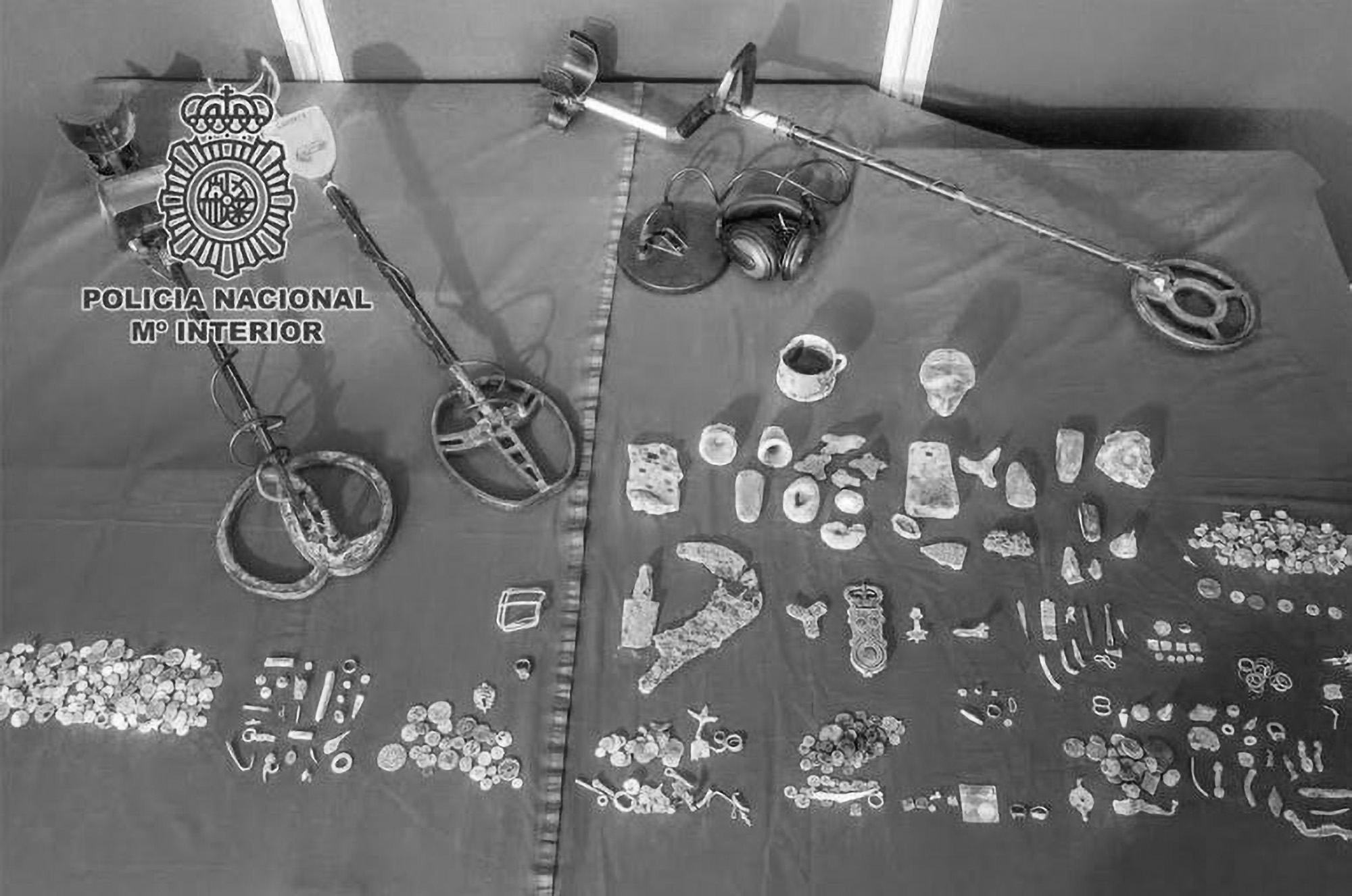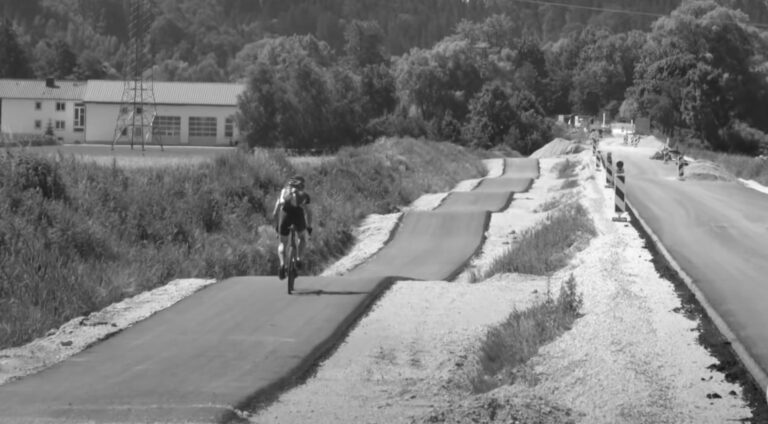A man has been arrested for plundering valuable artefacts that date back as far as 1,200 years before Christ after posting snaps of the loot on social media.
The items originated from the Tartessian culture that existed in southern Spain centuries before the birth of Christ.
The archaeological pieces, aged between 1,200 and 500 years before Christ, were reportedly taken from a property near Jerez de la Frontera in the province of Cadiz in the southern Spanish region of Andalusia.
Among the stolen artefacts were gold coins, a bronze figure of an Iberian lion, a sculpted bust of a woman, and five gold pieces that appear to be part of a necklace or bracelet.
The loot also reportedly included a gold earring that is believed to be of Phoenician origin and could be between 2,500 and 3,200 years old.
According to a National Police statement obtained by Newsflash, the suspect, whose name has not been disclosed, shared images of the artefacts on social media, and officers were alerted to the online posts.

After identifying the suspect, the police said that he is known to them and has been punished for similar offences in the past.
Spanish cops raided the man’s property in Villamartin and reportedly found the aforementioned artefacts, and a bronze axe, Roman-era weights as well as three metal detectors.
The police said the suspect then took them to a farm near Jerez de la Frontera where he claimed he found the items in the ground.
The police are investigating whether he was just collecting the artefacts or whether he had plans to sell them on.
If convicted of crimes against historical heritage, the suspect could face between three and six years behind bars.
Tartessos, also known as Tartessus, was a semi-mythical harbour city on the south coast of the Iberian Peninsula in modern Andalusia.
It first appeared in Greek sources and Roman authors later echoed the same details, however, by the end of the millennium there are indications that the name Tartessos had fallen out of use and the city may have been lost to flooding.
Archaeological discoveries in the region have built up a picture of a more widespread culture that includes some 97 inscriptions in the Tartessian language.
To find out more about the author, editor or agency that supplied this story – please click below.
Story By: Ana Lacasa, Sub-Editor: Alex Cope, Agency: Newsflash
The Ananova page is created by and dedicated to professional, independent freelance journalists. It is a place for us to showcase our work. When our news is sold to our media partners, we will include the link here.




